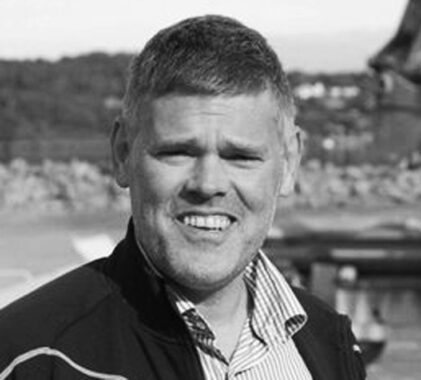Total Group operational EBIT was NOK 1,313 million (EUR 126 million) and total harvest was 53,600 tonnes. This resulted in an operational EBIT of NOK 24.51 (EUR 2.35) per kg.
“Our committed and highly skilled employees have continued to deliver solid operational performance in key areas, resulting in yet another quarter with strong results. The whole aquaculture industry is experiencing inflationary pressure, but we remain committed to our strategy, operating on the terms of the salmon and delivering products of excellent quality,” said SalMar’s CEO Frode Arntsen.
“Despite cost inflation on feed, Fish Farming Central Norway and Fish Farming Northern Norway continue to deliver solid results, driven by a consistently good operational performance. The operational performance is particularly impressive in Northern Norway, which posts yet another very good result”, Arntsen added.
Sales and Industry maintained a high level of activity through the quarter, reversing the negative effects of high contract share seen in the previous quarter.
“Through the third quarter, we have had a record high volume through our harvesting and processing facilities. And I am particularly pleased to see that the development in our new facility at Senja in northern Norway, InnovaNor, improves with each passing week. This strengthens our belief in our growth ambitions going forward,” said Frode Arntsen.

Icelandic Salmon delivered solid performance, but results were affected by the lower spot prices compared with the previous quarter.
“In the light of the uncertainty surrounding the Norwegian government’s tax proposal, SalMar has decided to put future investments on hold. And has already cancelled investments. SalMar works actively with relevant actors to ensure that predictable framework conditions are put in place that do not inhibit the innovative power and value creation in the local communities of the aquaculture industry,” said Arntsen.
“The proposal that has been submitted for consultation involves an increase on the tax on seafood production, from 22 to 62 per cent. No other country has introduced a tax of this kind and at this level on its food production. Both level and structure will divert investments from aquaculture in Norway to other countries and other industries. This will strongly affect innovation power and investments on the Norwegian coast. The tax will mean a sharp confiscation of investment capital for innovation and industrial construction in both aquaculture as well as adjacent and other industries,” added Arntsen.
In October, the European Commission cleared SalMar’s acquisition of a majority of the shares in NTS, and consequently also the merger between SalMar and Norway Royal Salmon (NRS).
“The strategic and operational rationale linked to the transaction is still good, and even if the industry has to scale back and reduce other planned investments, the need for increased efficiency and economies of scale has now become even greater. We are therefore very happy to have completed this important transaction,” said Arntsen.
Following completion of the transactions SalMar increases volume guiding in Norway with 5,000 tonnes to 180,000 tonnes for 2022. Volume guidance on Iceland is kept unchanged and for Scottish Sea Farms the volume guidance is reduced with 8,000 tonnes.
In the fourth quarter, costs are expected to be higher than in the third quarter. SalMar expects a contract rate of around 35 per cent in the fourth quarter 2022.
In 2023 SalMar expects significant volume growth following completion of the transactions with NRS, SalmoNor and NTS. SalMar expects to harvest 243,000 tonnes in Norway, 16,000 tonnes in Iceland and 43,000 tonnes in joint venture in the UK.

